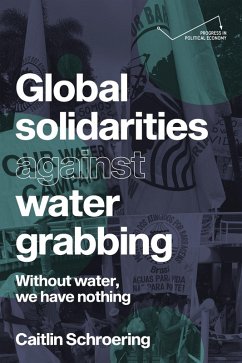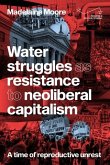Conflicts over water are human-caused events with socio-political and economic causes. From the Movement of People Affected by Dams in Brazil to Our Water Campaign in Pittsburgh, United States, people are coming together to fight for control of their water. This book examines how movements are communicating and organizing against water privatization and other forms of water grabbing, and explores how movements engage with and learn from each other.
Exploring major conflicts over water, the book illustrates how race, class, gender, sex and geographic location intersect in these moments of contestation. It observes the multi-scalar dimensions of social movements and campaigns fighting against water privatization as part of a larger project of contesting capitalism. It also sheds light on the mechanisms of power, envisioning alternative social structures, and emphasizing the significance of education and organization in fostering counter-hegemonic movements.
Drawing on political economy, feminist and decolonial/anticolonial research methods, and social movement studies amongst others, this multidisciplinary work allows us to imagine alternatives beyond capitalism. It allows activists and researchers to understand the locality of any concrete act of resistance against capitalist exploitation, while comprehending that the wider pressures of exploitation have a global structural source.
Exploring major conflicts over water, the book illustrates how race, class, gender, sex and geographic location intersect in these moments of contestation. It observes the multi-scalar dimensions of social movements and campaigns fighting against water privatization as part of a larger project of contesting capitalism. It also sheds light on the mechanisms of power, envisioning alternative social structures, and emphasizing the significance of education and organization in fostering counter-hegemonic movements.
Drawing on political economy, feminist and decolonial/anticolonial research methods, and social movement studies amongst others, this multidisciplinary work allows us to imagine alternatives beyond capitalism. It allows activists and researchers to understand the locality of any concrete act of resistance against capitalist exploitation, while comprehending that the wider pressures of exploitation have a global structural source.
Dieser Download kann aus rechtlichen Gründen nur mit Rechnungsadresse in A, D ausgeliefert werden.









